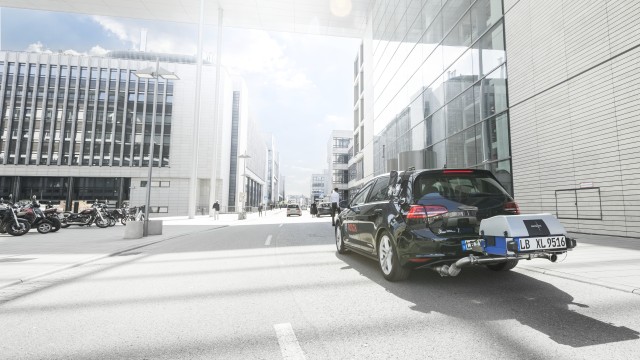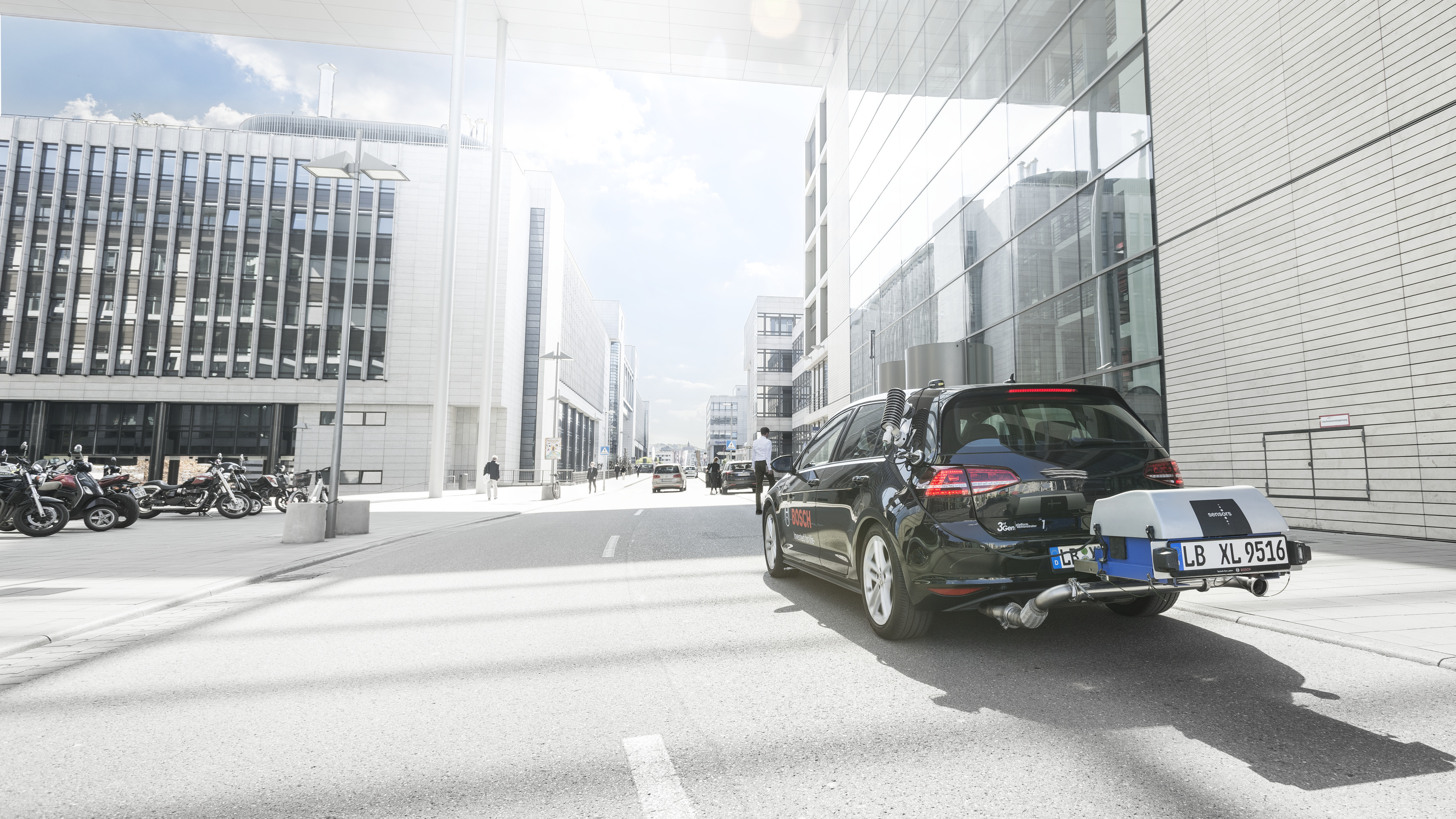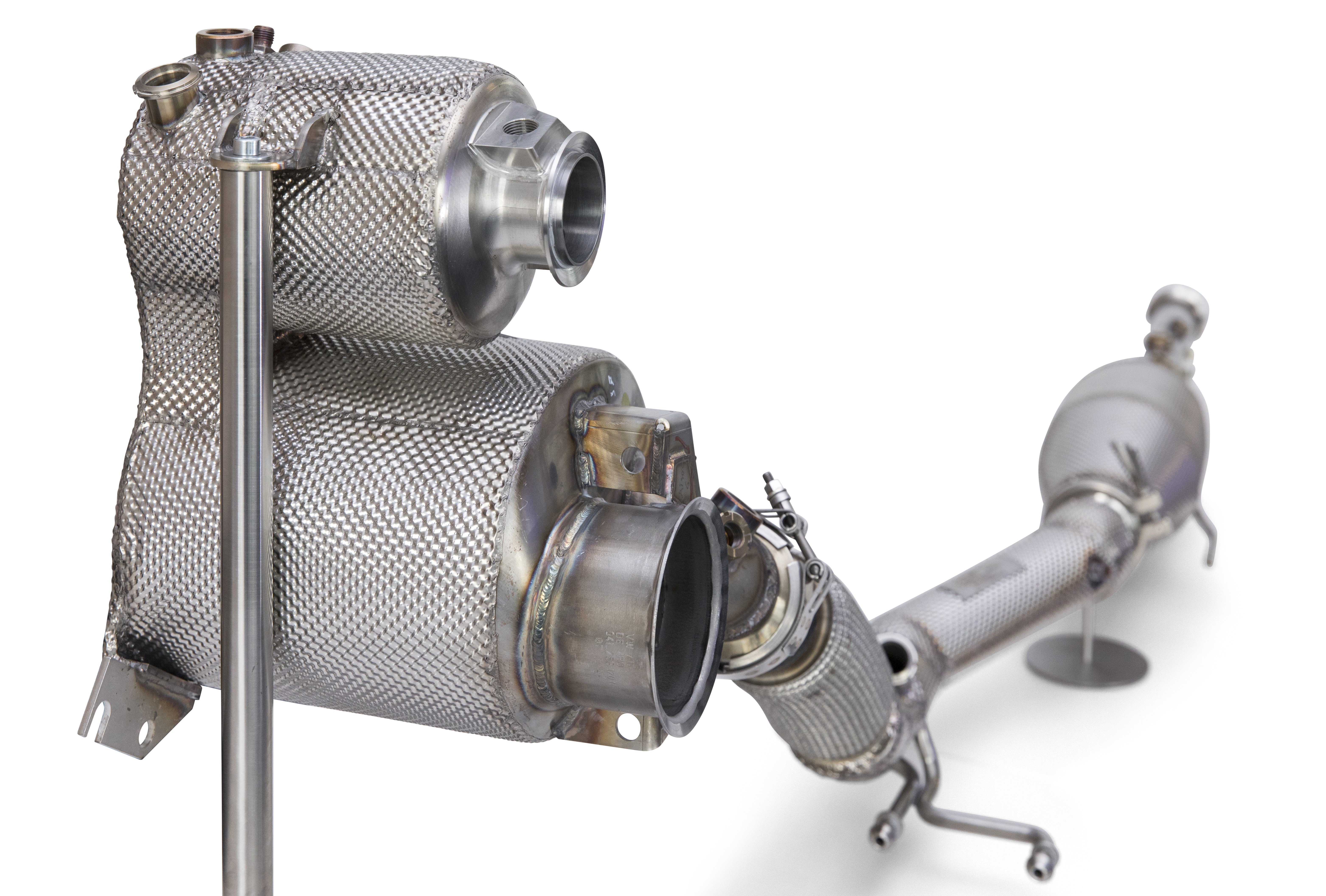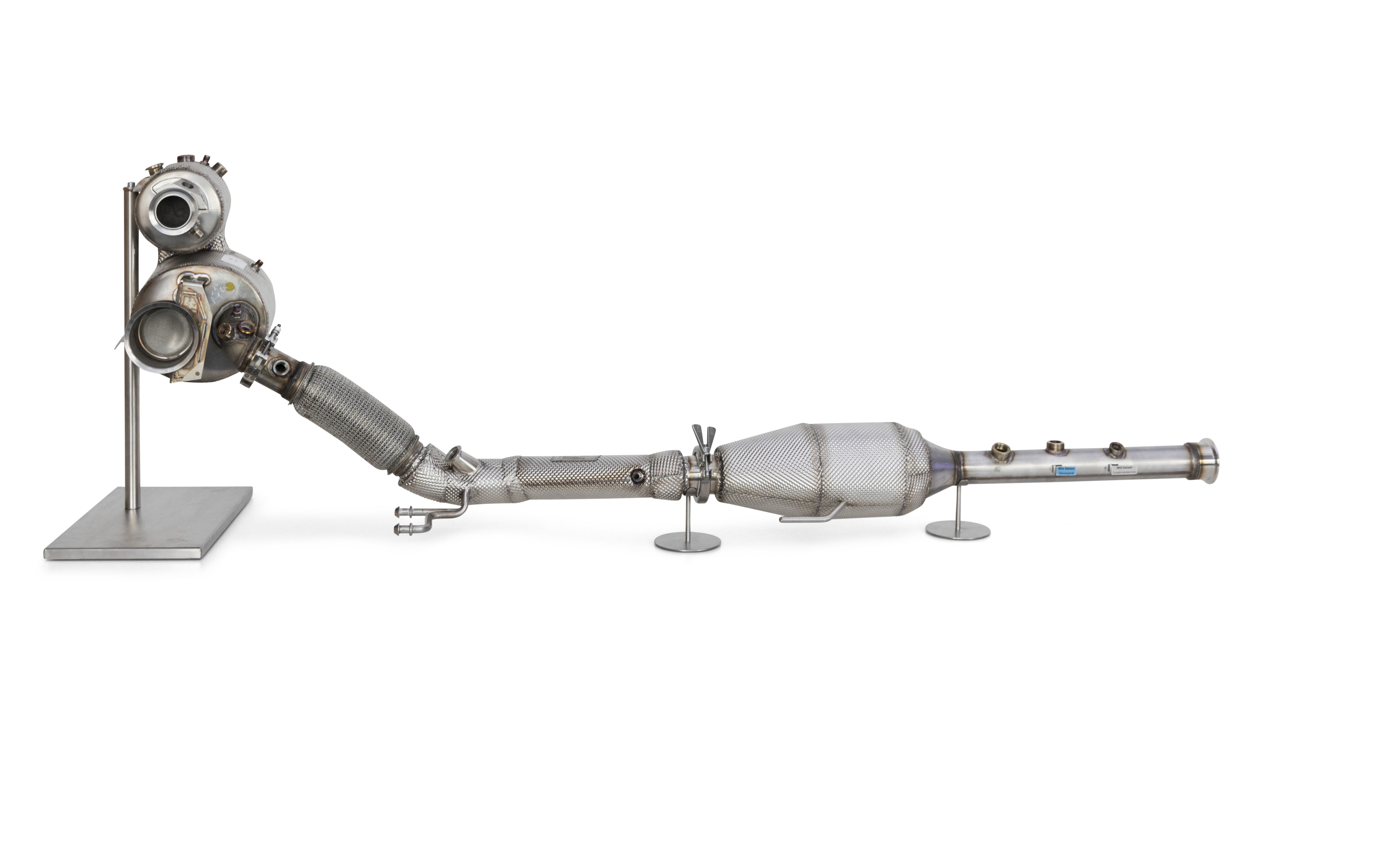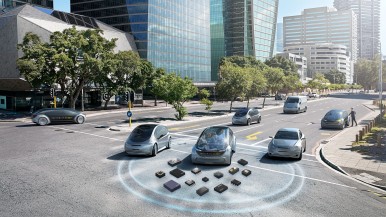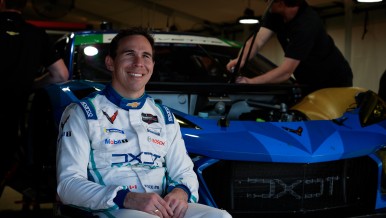What is the benefit of the new Bosch diesel technology?
Through continuing research and improvements in diesel technology and applications, Bosch engineers have been able to achieve even lower emissions of nitrogen oxides (NOx) across a wide range of environmental and driving conditions. In EU6-RDE on-road testing, vehicles equipped with the new Bosch diesel technology achieved average NOx emissions as low as 13 mg per kilometer. Although Bosch’s engineers achieved these results by substantially modifying existing technologies, the technologies are now available and can be applied in new vehicles without incurring high additional costs.
Is there any comparison for the number 13 mg/km?
Since 2017, the European EU6 RDE standard has required that new passenger car models be tested according to a mix of urban, extra-urban, and freeway cycles and emit an average of no more than 168 milligrams of NOx per kilometer. As of 2020, this limit will be cut to 120 milligrams. As of today, the demonstration vehicles equipped with Bosch’s new diesel technology have demonstrated that they can achieve average NOx emissions of as low as 13 mg/km over the course of a drive that fits the EU6-RDE testing requirements.
What is meant by “a wide range of environmental conditions”?
This includes extremes of driving styles (highly dynamic as well as very slow), both high and low ambient temperatures, in freeway as well as congested city driving, etc.
What distinguishes the new diesel technology?
The technological solution developed by Bosch involves a highly responsive airflow management system for the engine, including the use of a further optimized turbocharger and a combination of high- and low-pressure exhaust-gas recirculation, as well as an active SCR on DPF catalyst and passive downstream SCR catalyst. In addition, Bosch has also developed a sophisticated thermal management system for the diesel engine to help keep exhaust gases and equipment in a temperature range that helps optimize emissions reduction over a wide range of driving and environmental conditions.
When will the technology be ready for production?
Bosch has achieved these results in demonstration vehicles by substantially modifying engine and emissions configurations and the application of technologies and components that have now become available in the market. Bosch’s customers can begin to work with the system knowledge Bosch has developed and incorporate into production projects for future model years.
Why is urban driving more demanding than extra-urban or freeway driving?
To ensure optimum NOx conversion, the exhaust gases and control systems must be hotter than 200 degrees Celsius. This temperature can be a challenge to maintain in urban driving, when exhaust gases can cool due to gridlock or stop-and-go traffic. Bosch’s new thermal management system addresses this issue by actively regulating the exhaust gas temperature in a wide range of operating conditions.
Does the temperature regulation require an auxiliary 48-volt heater installed in the exhaust-gas system or additional components of a similar kind?
Bosch’s new diesel system is based on components already available in the market and does not require an additional 48-volt on-board electrical system.
Will the new Bosch technology make the diesel engine significantly more expensive?
Bosch does not believe that the technology will add significantly to the costs of producing diesel vehicles.
Will the diesel engine lose its comparative advantage in fuel economy and climate-friendliness as a result of the new technology?
No, our engineers were able to achieve their further reductions of NOx emissions while retaining the diesel’s comparative advantage in terms of CO₂ emissions.
When will the diesel technology be available for customers to buy?
Bosch is not in a position to say when vehicles will be available. This will depend on decisions by the OEMs.
You call it a breakthrough, but then say the parts are close to going into production. Isn´t that a contradiction?
Bosch has taken advantage of the fruits of ongoing research and development as well as new components now reaching the market, such that its customers can begin applying what Bosch has learned in projects for future model year production vehicles. The progress made is largely due to complex modifications of the entire system.
If Bosch is mainly making use of existing hardware, why are we only seeing this technology now, instead of some years ago?
Some of the hardware available now was not available years ago, and the engine management and temperature management Bosch has developed required years of systems engineering and learning that was not available years ago. In addition, Bosch engineers developed enhanced testing and measurement strategies that enabled them to measure vehicles’ emissions under more dynamic conditions and with greater precision. As the test and measurement systems improved, Bosch engineers could target their optimization efforts more precisely, which accelerated the pace of technological development.
What does this technology mean for urban air quality?
To find this out, Bosch asked an independent engineering firm to carry out an analysis. It looked at the air quality in the vicinity of the Neckartor monitoring station in Stuttgart, which is notorious for high NOx values. The results of the data analysis are clear: If all diesel vehicles were equipped with the latest Bosch exhaust technology, their share of local pollution would be negligible, and they would help maintain ambient air quality well within the limits set by the EU, even at Neckartor.
Can the new Bosch diesel technology be retrofitted?
Given the nature of the systems modifications Bosch made in its demonstration vehicles, it would not be reasonably feasible or practical to retrofit existing vehicles.
Hasn’t the technology come too late to prevent driving bans?
Policy makers have a variety of measures other than driving bans to help maintain ambient air quality within EU limits. Normal fleet renewal alone will help reduce the contribution of diesel passenger cars to ambient NOx levels, and if in the future all diesel vehicles employed the further advances Bosch has developed, diesel passenger cars will add only negligible amounts of NOx such that diesel driving bans will not be needed to meet ambient limits.
Is this complex technology also affordable in compact vehicles?
In principle, Bosch sees the technical feasibility to adapt the technology to various engine types.
How will AdBlue consumption be affected?
In the trial vehicle, AdBlue consumption is roughly 1.5 liters per 1,000 kilometers, even with sporty driving.
How much engineering effort went into the new diesel technology?
Development of the new diesel technology required an enormous amount of effort over the course of several years.

